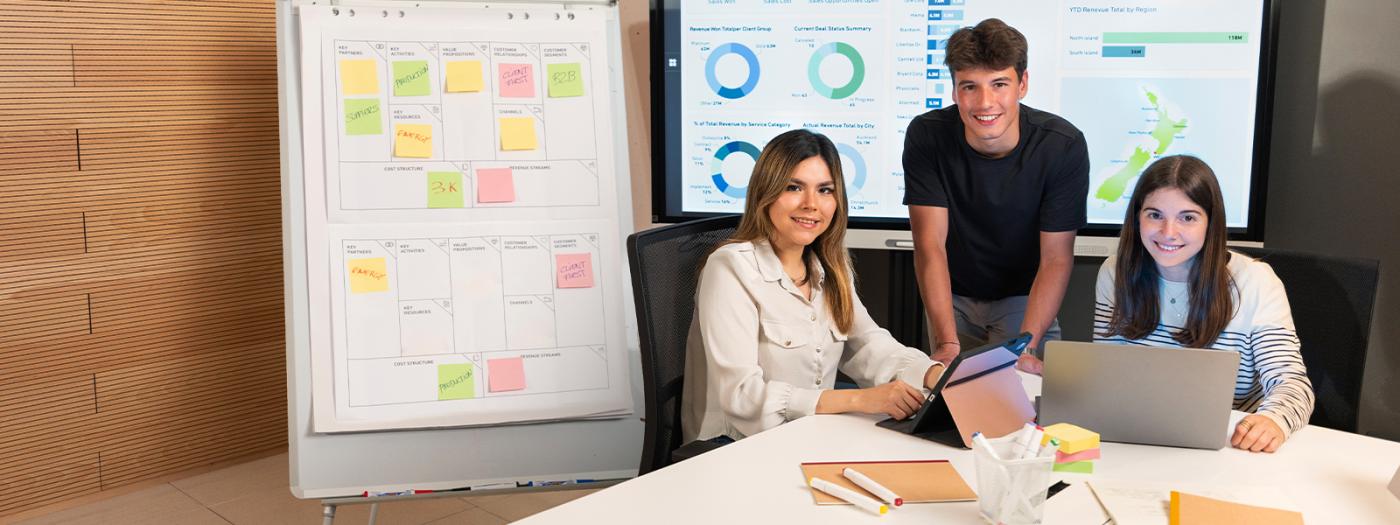- Understanding the entrepreneurial process
- Identifying, developing, assessing, and pitching new ideas
- Identifying ideas for new ventures
- Developing your ability to present ideas in a concise, compelling way
- Assessing the potential of new business ideas to become business opportunities
- Developing an awareness of the possibilities and limitations of different business models
- Enhancing your sensitivity and skills in discussing the financial needs of a new venture
- Identifying the challenges and opportunities of growth and harvesting
- Customer discovery and validation: testing the hypotheses in your initial business model to arrive at your first pivot
1 - Introduction and Design Thinking Workshop
2 - Finding the Right Idea for You
3 - Entrepreneur and Technova visit
4 - First Idea Presentations, Competitive Benchmarking
5 - Customer Discovery and Problem Interviews Workshop
6 - Problem + Solution Workshop - Visual Stories
7 - The Customer and Value Proposition Analysis
8 - Business Model Canvas Tutorial - My Taxi Case + Work on First Business Model Canvas
9 - Assumptions Mapping + Business Model Canvas Workshop
10 - Minimum Viable Product and the Pivot / Startup Dashboard
11 - Prototyping
A. Reading assignments: read text assignments prior to class and be prepared to discuss the text material, answering instructor questions orally with well-organized thoughts and ideas.
B. Class attendance: you are expected to attend each class period, be on time and stay the full class period or be counted absent. You are responsible for all course material missed due to absence. The instructor does not provide class notes for classes missed.
C. The main project we will work on throughout the course is generating ideas for a new technology start-up, developing the business model for the start-up, and collecting information from potential stakeholders to improve and change the business model based on this feedback. Each team of 3-5 students will have the backing of your tutor who will provide guidance in the development and iteration of the Business Model. You will make presentations throughout the course, and will prepare a final deliverable at the end of the course that summarizes your learning journey in validating your idea.
1. Class Attendance and Participation 20%
2. Failure CV 10%
3. Midterm Presentation 15%
4. Midterm Team Assignments 10%
5. Innovation and Inspiration 10%
6. Final Reflection 10%
7. Final Deliverable 25%
- Fitzpatrick, R. (2014). The Mom Test: How to Talk to Customers and Learn If Your Business is a Good Idea when Everyone is Lying to You.
CreateSpace Independent Publishing Platform, 2014. ISBN: 1492180742, 9781492180746
- Maurya, A. (2012). Running lean: Iterate from plan A to a plan that works. Sebastopol, CA: O'Reilly.
- Osterwalder, A and Pigneur, Y (2010) Business Model Generation, John Wiley & Sons. ISBN: 978-0470-87641-1.
- Mullins, R. and Komisar, R. (2009) Getting to Plan B, Harvard Business Press. ISBN: 978-1-4221-2669-1.
